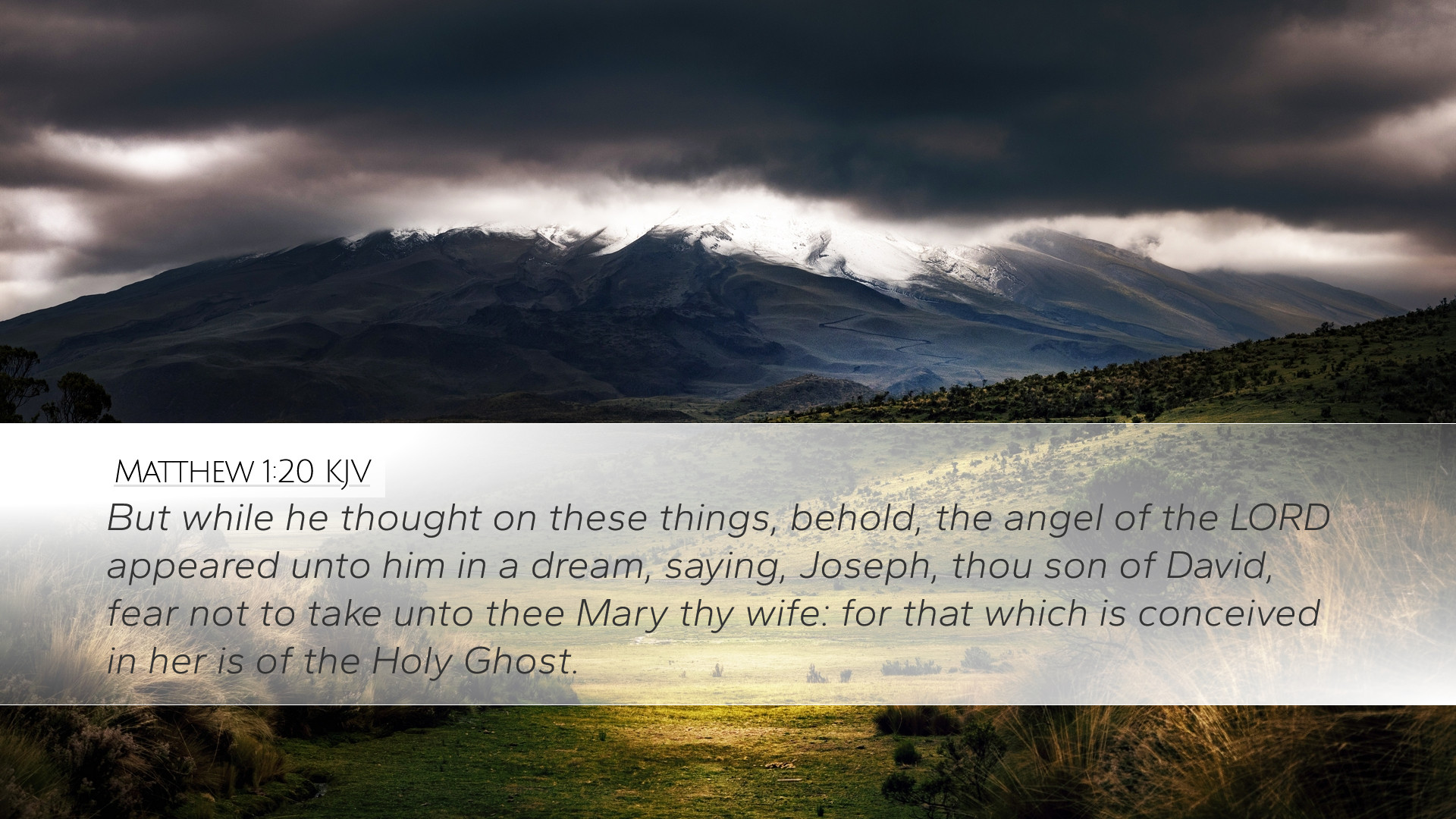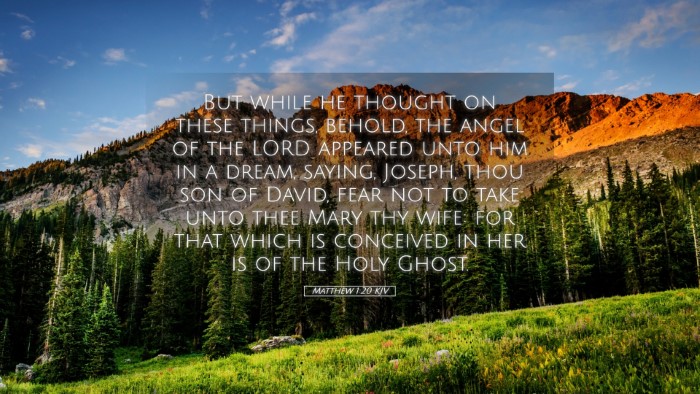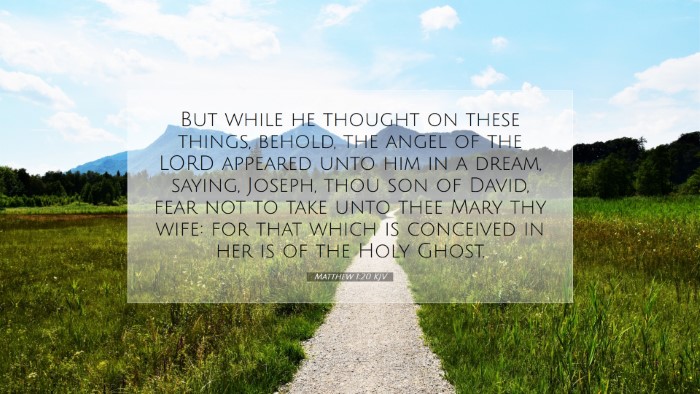Commentary on Matthew 1:20
Text of Matthew 1:20: "But while he thought on these things, behold, the angel of the Lord appeared unto him in a dream, saying, Joseph, thou son of David, fear not to take unto thee Mary thy wife: for that which is conceived in her is of the Holy Ghost."
Introduction
This pivotal verse in the Gospel of Matthew sets the foundation for understanding the Incarnation and the divine nature of Jesus Christ. In the context of Joseph's predicament, it reflects profound theological implications regarding God's intervention in human affairs and the fulfillment of His promises.
Contextual Background
Joseph, betrothed to Mary, faced an unimaginable crisis when he learned of her pregnancy. His initial response was one of concern and hesitation, showcasing his righteousness and desire to protect Mary's honor (Matthew 1:19). Most biblical scholars recognize that Joseph's character is central to the narrative, emphasizing the tension between law and grace, duty and compassion.
The Divine Revelation
- Angel of the Lord: The appearance of the angel signifies divine intervention. As noted by Matthew Henry, angels often serve as God's messengers. Here, the angel's role is to clarify the circumstances surrounding Mary's conception.
- In a dream: The decision to convey this message in a dream indicates the humanitarian nature of divine communication. Joseph, while contemplative, is granted clarity through a divine vision, highlighting how God often speaks in momentary times of silence and stillness.
Addressing Joseph
The angel addresses Joseph as "thou son of David," linking him to the Messianic lineage. This connection is crucial; it reminds Joseph (and the readers) of God's covenant promise to David, fulfilling the prophetic assurances that the Messiah would come from his line.
The Call to Action
Fear not: This phrase reassures Joseph, alleviating his anxieties and doubts. Albert Barnes emphasizes the importance of this command as it invites Joseph to embrace his role in the redemptive plan without fear. God's call often requires us to step into the unknown, yet it is accompanied by His urgent reminder of peace.
Understanding Mary's Condition
- Of the Holy Ghost: This critical phrase establishes the divine nature of Jesus’ conception. Adam Clarke articulates that this miraculous occurrence is central to the doctrine of the Virgin Birth, affirming Jesus' identity as both fully divine and fully human.
- Theological Implications: The virginal conception is foundational to Christian belief, underscoring not only Jesus' divine origin but also God's overarching plan for salvation. The mention of the Holy Ghost reveals the distinct work of the Trinity in the Incarnation.
Theological Reflections
The moment captured in Matthew 1:20 reflects the intertwining of fear, faith, and divine revelation. Joseph's encounter is emblematic of the broader biblical narrative where human frailty encounters divine resolve. For theologians and scholars, this verse beckons a deeper exploration of the mystery of faith, the nature of God’s call, and the significance of obedience in the face of uncertainty.
God’s Sovereignty
This verse underscores God's sovereign will and the fulfillment of prophecy through unexpected circumstances. Joseph, an ordinary man, becomes an integral part of a divine story. Matthew Henry asserts that God's purposes are often realized in ways we least expect, showcasing His ability to use the willing and humble for His majestic plans.
Relevance for Believers
For pastors, the message from Matthew 1:20 is a source of encouragement for congregations. The importance of fears that can arise during decision-making processes highlights the need for discernment and reliance on God’s guidance. For students of the Word, this passage serves as a compelling case study on how faith intersects with the realities of life.
Conclusion
Matthew 1:20 is a profound revelation of God's desire to communicate with His people through messengers and dreams. It challenges believers to respond to divine interruptions with courage and trust. In this narrative, Joseph embodies the ideal response to God's call: one of acceptance, humility, and unwavering faith in God's redemptive purposes.


